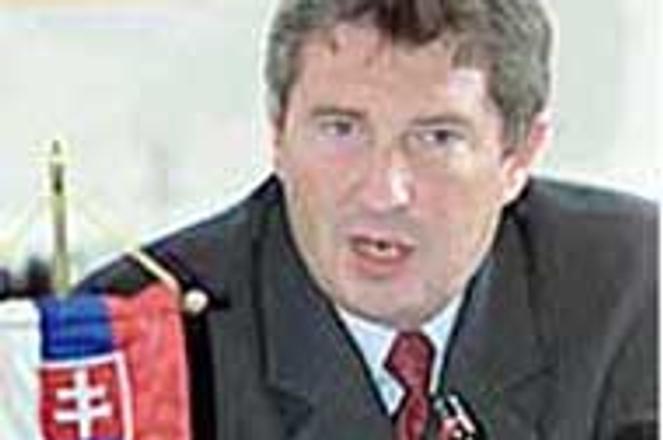Interior Minister Ivan Šimko is worried about 'traded' information.photo: TASR
"If the Law on State Service had allowed me to recall Stieranka I would have done so a long time ago."
Police Presidium Vice-President Jaroslav Spišiak
A BITTER row has broken out between top police officials after the head of the financial police refused to resign his post.
Jozef Stieranka has been backed by police unions in his refusal to step down after being told by the National Security Office (NBÚ) that he was unfit to handle confidential documents.
The NBÚ's ruling, announced February 6, meant that Stieranka, a former communist secret police agent, would have to step down immediately or lodge a formal protest within two days.
But Stieranka has appealed the decision, and representatives of the police trade union have said they have taken legal action over the NBÚ's conduct in the matter.
"We have asked for an investigation on the grounds of suspicion of abuse of power by public officials," said Miroslav Litva, the president of the police union. He added that the NBÚ had broken the law by neither talking to nor calling Stieranka for an interview.
The appeal was followed by a bitter personal attack on the financial police head from Jaroslav Spišiak, vice-president of the Police Presidium, a senior police body.
"If the Law on State Service had allowed me to recall Stieranka I would have done so a long time ago," said Spišiak.
He added that not a single case of money-laundering had been closed by Stieranka's department in 2001.
"If not one case is closed then I don't know what else we should think about Mr. Stieranka," he said.
Spišiak's uncompromising criticism of Stieranka's work has been echoed by Interior Minister Ivan Šimko.
When taking his post last year Šimko said he wanted to remove Stieranka but lacked the authority to do so. Spišiak has also said he would sack the financial police chief if he had the power.
After being apprised of the NBÚ's assessment of Stieranka, Šimko said: "It's a serious matter which Nato will also take seriously. I said myself when taking my post that a lot of information is traded in this country."
He also cast doubt on the work of the financial police under Stieranka, saying that some investigations carried out by the office might have failed because of officers' connections to organised crime groups.
"There are suspicions that many serious financial cases have not been sufficiently resolved because information has been leaked. But it's hard to find out through whom it has been passed," he said.
Late last year Šimko said that he would like to see the structure of the police, especially the financial police, changed so that fewer agents of the former ŠtB Czechoslovak secret police were working at the top levels of the force.
International financial organisations such as the International Monetary Fund (IMF) have been critical of Slovakia's apparent failure to deal with financial crime, such as money-laundering, by organised crime syndicates.
A number of former members of the ŠtB are thought to work in government ministries, the police corps and the current secret service. Former ministers have admitted that some ŠtB alumni work in the financial police.
Ladislav Pittner, Interior Minister from 1998 until his resignation last year, said that many former ŠtB agents had been given positions in the police in the early 1990s because of a shortage of experienced officers so soon after the 1989 fall of communism in central Europe.
The NBÚ, created last year as a requirement prior to Slovakia's possible Nato admission, is running checks on workers in state administration.
The admitted presence of ŠtB officers in the financial police could see more officers being told they must leave their positions.
However, some Nato experts believe the attention that had been focused on Stieranka will be viewed positively in Brussels.
"Nato will see this as the first signal that the NBÚ is working properly and doing the job it was created for. The system has started operating," said Grigorij Mesežnikov, president of the Institute for Public Affairs (IVO).
A Nato mission that visited Slovakia in late January told the government it felt that not enough people with access to classified documents were being vetted by the NBÚ.

